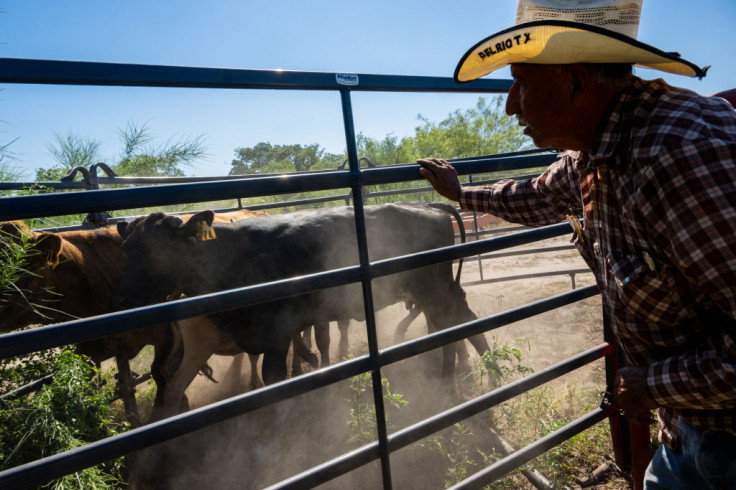
Depressed beef U.S. prices, severe droughts and increasing costs have shrunk America's cattle supply to its lowest level since 1961 — and President-elect Donald Trump's policy plans probably won't help the industry, according to a report Monday.
America's cattle herd size has dropped nearly 40% from the last peak in 1975. The latest down cycle that began in 2020 has seen it decrease faster than since the 1980s farm crisis, Bloomberg said.
The situation has struggling ranchers sending young cows to slaughter too soon to grow their herds. The shortage of beef cattle is so extreme that some milk producers are breeding hybrid dairy-beef cattle to sell for meat, Bloomberg said.
Cash Carruth, who manages about 250 cattle in Bloomfield, New Mexico, said that even though beef prices have recovered from recent lows, he's selling "every calf" possible to offset his past losses.
"This extra that we're making right now is not necessarily room for expansion, but it's to help us with the Band-Aid that we put on from 2015 until 2022," he said. "Everybody is trying to make up for those mediocre years, especially if you borrowed any money."
Agricultural giant Tyson Foods also said the cattle shortage wiped out billions of dollars in operating profits from its beef operation over the past two years. The company expects it to run at an adjusted loss for a second year in 2025, Bloomberg said.
In February, the U.S. Department of Agriculture said it expected the county's cattle inventory to start growing next year. It has since pushed back the start date of a meaningful recovery to 2027.
And although Trump won all the major beef cattle-producing states in last month's election, the migrant deportations and new tariffs he's promised are likely to make the problem worse, experts said.
"All of the things he is talking about have potential negative consequences more so than anything positive," said Derrell Peel, a professor of agricultural economics at Oklahoma State University.
Magaly Licolli, co-founder of Venceremos, an Arkansas-based advocacy group for workers in the poultry industry, said Trump's plan to deport millions of migrants meant that "the situation for immigrant meatpackers will look pretty ugly."
Replacing those workers would also pose a problem, Bloomberg Intelligence analyst Jen Bartashus said.
"They're hard jobs to fill and they're jobs that most Americans don't want to do," Bartashus said.
Meanwhile, food producers have been increasingly relying on imported meat to satisfy Americans' demand for ground beef and hamburgers, with beef and veal imports expected to reach a record 2 million metric tons, Bloomberg said. Imported meat also now accounts for a record 15% of U.S. consumption.
Bill Bullard, who leads a nonprofit group that represents independent U.S. cattle and sheep producers, said tariffs that stemmed beef imports would "provide our industry an opportunity to invest in expansion and to begin rebuilding the herd that has been shrinking at an alarming rate."
"Over the long term, consumers are going to be better served because we will no longer have such a dependency on imported products," said Bullard, CEO of the Billings, Montana-based Ranchers-Cattlemen Action Legal Fund, United Stockgrowers of America, also known as R-CALF USA.







